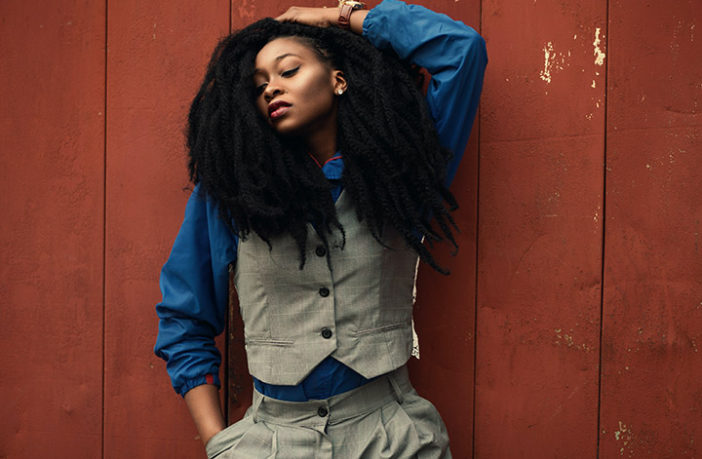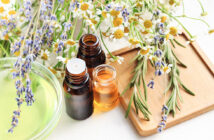Hair care is among the most overlooked modern day beauty routine rituals. In this issue, we’re consulting a specialist about the most common hair concerns.
Hair care was often a generational bonding ritual among women across various continents. Traditional hair care regimens varied from Africa to the Middle East to the Indian subcontinent but it was a way for women of all ages to gather and participate in many hair care and hair preparation routines. With the advent of easy-to-use shampoos and conditioners, the widespread availability of salons for other hair treatments and the overall lack of time in our current daily lives, many hair care rituals are disappearing. However, a shift towards natural hair in social media is inspiring many people to return to their untreated natural hair and work towards hair health.
In this article, we are interviewing Dr Juhainah AlJababili, dermatology specialist who has been working in Riyadh since 2002, about the most common hair care-related concerns in the region and how to manage them.
What are some of the most common hair concerns that bring patients to your clinic?
By far, the most common complaint about hair is hair fall. The second most common question is about dry hair and we also see a lot of patients complaining about greasy scalps. The hair is a mirror of general health and many diseases such as thyroid conditions, anemia, and protein malnutrition are reflected onto people’s hair.
When should someone visit a doctor for their hair fall?
Hair fall of up to 50-100 strands per day is natural. When hair fall exceeds this natural limit or you start to notice empty spaces between hair follicles and hair thinning, it is a red flag and you should consult a doctor. If you start noticing a significant increase in your hair fall when cleaning your bed, bathroom, or combs, then you should also consider consulting a doctor.
What are some common causes of hair fall and how can we handle them?
Stress is a common cause for increased hair loss. Major stressful life events or illnesses are often followed by an episode of hair loss. Even those who were symptomatic with COVID-19 are expected to have an episode of hair loss within four months of their diagnosis due to the stress the disease puts on their bodies. Hence, engaging in relaxing activities and eating nutritious meals are essential. This kind of hair loss is usually short-lived, the hair regrows naturally and so people should not worry too much about it but continue to take multivitamins and take care of their hair.
The most common major treatable cause of hair loss among females is low iron levels. This is why iron supplements are important for women with heavy menstrual cycles or anyone with anemia and incorporating iron-rich foods such as dark green vegetables and red meat is an essential component of everyone’s diet.
Among men, genetic male pattern baldness is the most common cause. We call this androgenetic alopecia and the only FDA-approved treatment is minoxidil, found online as Rogaine. Minoxidil is the most effective treatment and first line treatment for hair loss as it antagonizes the male hormone but it can cause dependence in women. This means that once you stop using it, you can have rebound loss of hair. Therefore, we encourage minoxidil to be used freely by men but not by women.
What diet is important for hair?
A diet that is high in protein because our hair and nails are made of proteins. The protein breakdown component cysteine is a vital part of the basic structure of our hair and is found in most high protein foods such as chicken, turkey, yogurt, cheese, eggs, sunflower seeds, and legumes.
Vitamins such as B12, B6, B7 (biotin), and minerals such as Zinc and Iron are also very important for hair formation and growth. They can be found in different multivitamins, supplements and fresh vegetables. Biotin is found in eggs.
How can we overcome hair dryness?
Hair dryness can be overcome by using a good shampoo, I mainly prescribe baby shampoo for anyone struggling with dry hair because it has less chemicals.
One of the reasons for a rise in hair dryness is over processed hair. Hair dyes with unnatural colors such as blue and purple, or high percentage bleaches used to create very light hair colors destroy the hair shafts and cause very dry hair. Protein treatments also damage the hair as they break the chemical bonds in the hair shaft and create a new shape. Reducing the use of heat, using heat protectant sprays when needed, and avoiding salon treatments can improve hair quality over time. For those whose hairs are exposed to the sun, sunscreen spray can also greatly benefit your hair dryness.
How do you recommend we handle flaky or greasy scalps?
Flaky dry scalp can be healed with the use of specified shampoos for flaky scalp and limiting washing the hair to twice a week. Using proper oils like argan oil can have a calming effect on the scalp and it is good for hair shafts too.
Greasy scalps are often caused by hormonal imbalances, especially when they are seen with acne. The use of special grease-controlling shampoos, washing hair every other day and avoiding excess cleansing as that also leads to hair loss is most helpful in these patients.
What are some hair care myths you often hear patients say?
Many people believe applying oils to the scalp will cause hair to grow faster but that isn’t true. Different kinds of oils are very good for hair shafts to make them shiny and soft but it doesn’t affect hair growth. I’ve also seen some patients use peptide serums on their scalp. Peptides are large molecules and can’t penetrate the scalp to the hair so it should only be added to the diet. Peptides are proteins and so routine dietary intake of proteins is sufficient.
A hair care practice that is actually not a myth is scalp massages. Gently massaging the scalp can improve blood supply to the hair roots and allow good oxygenation and nutrient supply to the scalp for better hair growth.
We hope these points help you consider your hair care routines more carefully and you are able to utilize the information we gathered above and create a hair care routine most beneficial to your unique hair care needs!
Dr. Juhainah AlJababili
Cosmetic Dermatologist
Malesa Clinic
3232 Saeed Bin Khalid Street,
Northern Maathar, Riyadh
Instagram: @juhainah68




